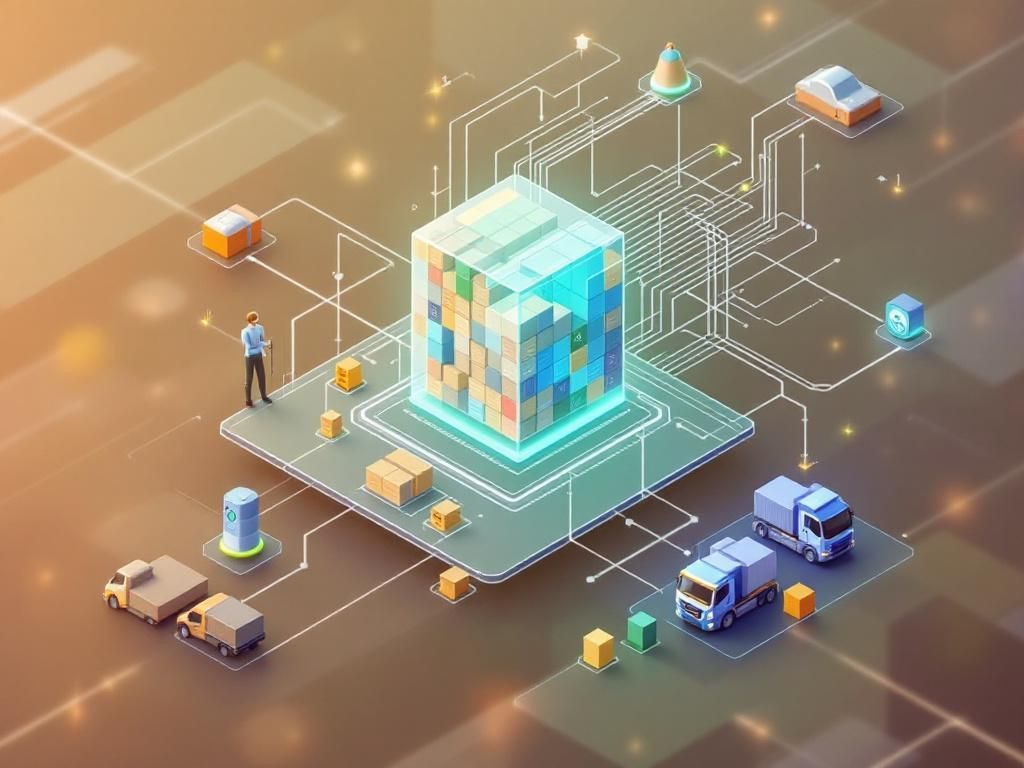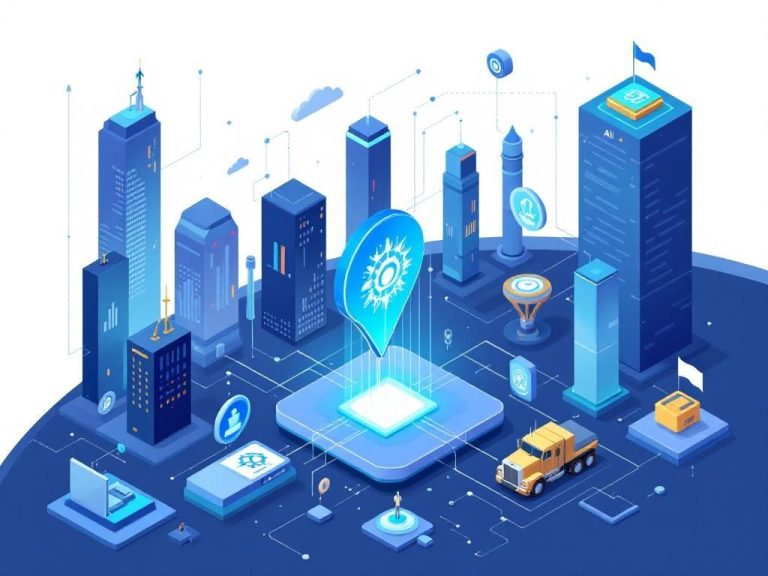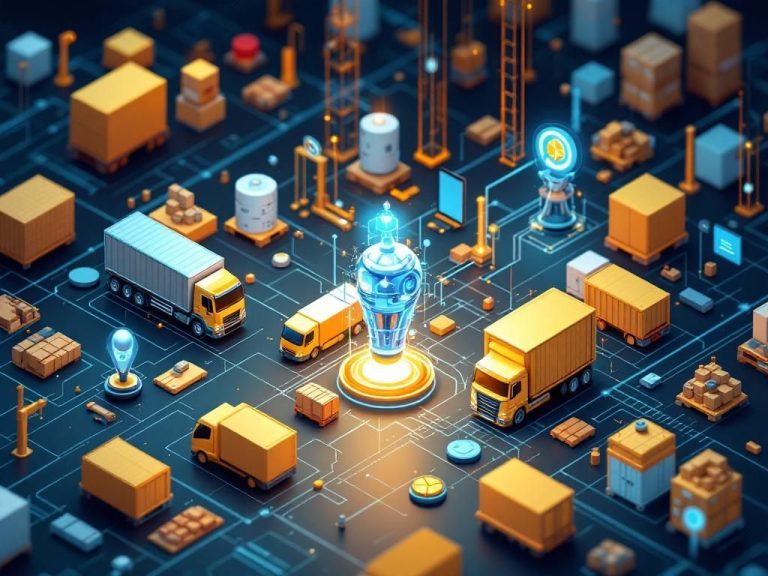The landscape of supply chain management is undergoing a transformative evolution, driven by the integration of artificial intelligence (AI) technologies. As we step into 2025, organizations worldwide are increasingly recognizing the critical role that AI plays in enhancing supply chain efficiency, agility, and resilience. In this article, we will explore the leading AI supply chain optimization platforms that are set to redefine how businesses approach their supply chain challenges.
Understanding AI in Supply Chain Management
AI in supply chain management refers to the application of machine learning, data analytics, and automation technologies to optimize various processes such as demand forecasting, inventory management, logistics, and supplier relationship management. The key benefits of incorporating AI into supply chains include:
- Enhanced decision-making: AI algorithms analyze vast datasets to offer actionable insights.
- Increased efficiency: Automation of repetitive tasks leads to quicker and more accurate operations.
- Improved responsiveness: AI models adapt to changes in demand and supply dynamics in real-time.
- Cost savings: Optimized operations lead to reduced waste and lower operational costs.
Key Features of Leading AI Supply Chain Platforms
Not all platforms are created equal. When evaluating the best AI supply chain optimization platforms, consider the following features:
1. Predictive Analytics
Utilizing historical data, predictive analytics enables companies to forecast demand and optimize inventory levels.
2. Real-Time Data Processing
Access to real-time data allows for quicker decision-making and enhanced agility.
3. Machine Learning Capabilities
Machine learning algorithms continuously improve their performance based on new data inputs.
4. User-Friendly Interface
An intuitive interface enhances the user experience and simplifies complex processes.
5. Integration Capabilities
Seamless integration with existing ERP and supply chain systems is vital for a smooth transition and operation.
Top AI Supply Chain Optimization Platforms of 2025
Here are some of the most promising AI supply chain optimization platforms anticipated to lead the market in 2025:
1. Kinaxis RapidResponse
Kinaxis RapidResponse is a cloud-based platform known for its robust demand planning and supply chain analytics capabilities. Key features include:
- Integrated planning: Enables cross-functional collaboration.
- Scenario modeling: Users can simulate various supply chain scenarios.
- Real-time insights: Utilizes AI to deliver actionable insights promptly.
2. Llamasoft (Coupa)
Following its acquisition by Coupa, Llamasoft continues to be a leader in supply chain optimization. Its AI-driven solutions focus on:
- Network optimization: Helps businesses design optimal supply chain networks.
- Cost-to-serve analysis: Provides insights into the cost structure of different supply chain routes.
- Risk management: Identifies potential risks and suggests mitigation strategies.
3. Blue Yonder (formerly JDA Software)
Blue Yonder utilizes AI and machine learning to create end-to-end supply chain solutions. Key offerings include:
- Demand forecasting: Uses AI to analyze patterns and predict future demand accurately.
- Inventory management: Offers tools to optimize stock levels across various locations.
- Transportation optimization: Helps in planning and executing efficient transportation routes.
4. SAP Integrated Business Planning (IBP)
SAP IBP leverages AI to enhance supply chain planning processes. Its notable features include:
- Collaborative planning: Facilitates collaboration among various stakeholders.
- Forecasting and demand management: Provides advanced analytics for better demand visibility.
- Integrated financial planning: Links financial goals with supply chain strategies.
5. Demand Solutions
Demand Solutions is a comprehensive suite focused on demand planning and inventory management. Important features include:
- Forecasting tools: Allows users to create accurate forecasts using AI models.
- Customizable dashboards: Users can design dashboards that fit their specific needs.
- Collaboration tools: Facilitates team collaboration on forecasts and inventory planning.
Trends Driving AI Supply Chain Optimization in 2025
As we look toward 2025, several trends are expected to shape the future of AI in supply chain optimization:
1. Increased Adoption of IoT
The Internet of Things (IoT) will play a crucial role in connecting supply chain elements, providing real-time data that fuels AI algorithms.
2. Focus on Sustainability
AI will aid organizations in optimizing their supply chains to reduce carbon footprints and promote sustainability.
3. Greater Emphasis on Resilience
In light of recent global challenges, AI solutions will focus on building more resilient supply chains capable of quickly adapting to disruptions.
4. Expansion of Blockchain Integration
The integration of blockchain technology with AI will enhance supply chain transparency and traceability.
Implementing AI in Your Supply Chain
For organizations looking to implement AI in their supply chain, consider the following steps:
- Assess current capabilities: Understand existing processes and technologies.
- Define goals: Set clear objectives for what you want to achieve with AI.
- Choose the right platform: Select a platform that aligns with your business needs and goals.
- Invest in data quality: Ensure that the data feeding into the AI algorithms is accurate and reliable.
- Foster collaboration: Promote collaboration among departments to maximize AI’s impact.
The Future of Supply Chain Optimization
As we advance into 2025 and beyond, the role of AI in supply chain management will continue to expand. Organizations that embrace these technologies will not only achieve operational efficiencies but also create more agile and resilient supply chains capable of meeting evolving customer demands and navigating uncertainties. The future is bright for companies willing to leverage AI for supply chain optimization, positioning themselves as leaders in an increasingly competitive landscape.
FAQ
What are the leading AI supply chain optimization platforms of 2025?
The leading AI supply chain optimization platforms of 2025 include platforms like IBM Watson Supply Chain, SAP Integrated Business Planning, Oracle Supply Chain Management Cloud, and Blue Yonder.
How can AI improve supply chain efficiency?
AI improves supply chain efficiency by analyzing data patterns, predicting demand, optimizing inventory levels, and automating logistics processes, resulting in reduced costs and improved service levels.
What features should I look for in an AI supply chain optimization platform?
Key features to look for include predictive analytics, real-time visibility, demand forecasting, inventory optimization, and integration capabilities with existing systems.
Are AI supply chain optimization platforms suitable for small businesses?
Yes, many AI supply chain optimization platforms offer scalable solutions that can be tailored for small businesses, helping them enhance their operations without overwhelming costs.
What are the benefits of adopting AI in supply chain management?
The benefits of adopting AI in supply chain management include improved decision-making, increased operational efficiency, enhanced customer satisfaction, and the ability to quickly respond to market changes.
How do I choose the right AI supply chain optimization platform for my business?
To choose the right platform, assess your business needs, consider scalability, evaluate ease of integration, and review user feedback and case studies to understand the platform’s effectiveness in real-world scenarios.




